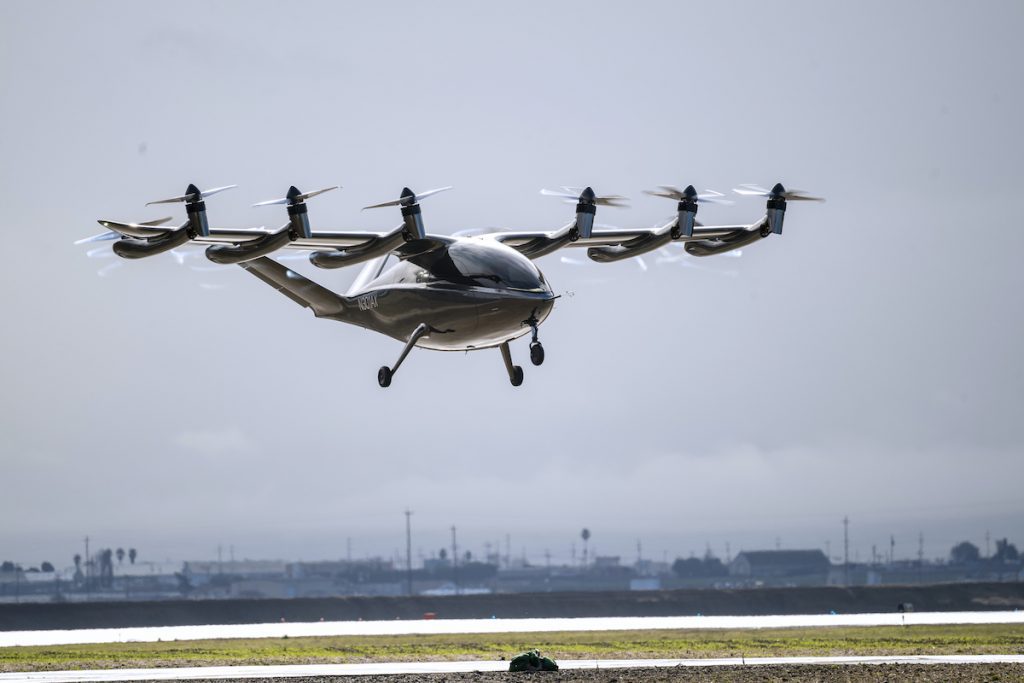The future commercial use of electric vertical takeoff and landing vehicles, or eVTOLs, will be “highly challenging,” according to former Spirit Airlines CEO Ben Baldanza, who’s a fan of the technology’s potential, but thinks industrial and military applications would take place first.

Baldanza, writing in Forbes about these helicopter-like electric vehicles, said they indeed face tech challenges regarding battery life, the intent to operate in congested areas, a lack of trained pilots, and the costs would preclude eVTOLs becoming a popular transportation alternative anytime soon.
Instead of carrying passengers, these electric flying vehicles would likely first see their initial applicability in carrying cargo and transporting packages, Baldanza wrote.
Transporting equipment during battles may also be an initial preferred use for electric vertical takeoff and landing vehicles, he wrote.
“Timing of flights likely would not conflict as much with other airspace uses, and utilization can be improved,” Baldanza wrote. “Also, industrial and military uses won’t be especially helpful in only the biggest metro areas, meaning that some issues will be easier to work out. This makes sense, and this eVTOL equipment will compete with smaller drones for some operations.”
Special purpose acquisition company mergers have been a popular funding mechanism for electric vertical takeoff and landing vehicles, Baldanza wrote, “even though revenue streams may be many years away.”
And Baldanza, who pioneered everything from charging for boarding passes to overhead bin space during his 11 years (2005 to 2016) as CEO of Spirit, knows a few things about revenue streams.
Tags: cargo, eVTOL, future of travel, pilots, spirit airlines, tech